Random Rant: Shut Up And Enjoy The Game
Published on March 11th, 2013 in: Gaming, Over the Gadfly's Nest, Random Rant |By Luke Shaw
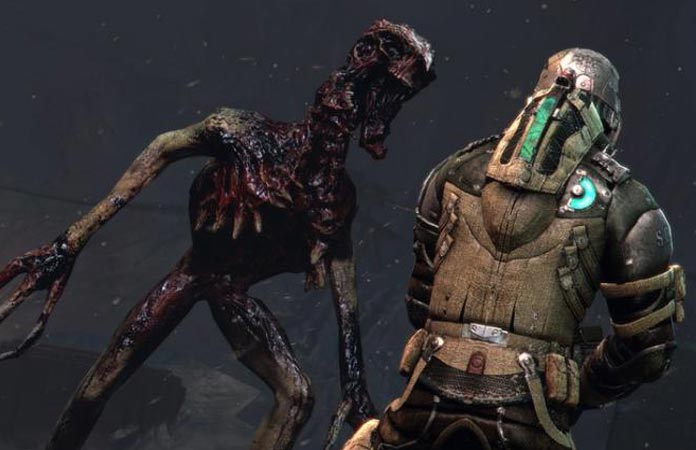
We’ve got it better than ever, so shut up and enjoy the game.
At some point in 2011 I held an opinion that I had read frequently on Twitter feeds, website comment boxes, and Op eds about games. I was “lamenting” the lack of creativity in big budget games and griping about the apparent absence of quirky titles on the shelf. “Where is my Gitaroo Man 360?” I wailed. “Where is my turn based isometric battler loaded with pop culture quips?” I groaned, possibly dribbling a bit of coffee whilst mouthing these words. You see, I never really said any of these things; that’s a lie. I did type them however, on Twitter, and on a forum, and maybe in other places, too.
Now it’s the beginning of 2013, and we have confirmation from Sony that the PS4 will be out in quarter three or four depending on territory. Black Ops 2 made $500 million in 24 hours last year, becoming one of the biggest entertainment franchises in the world, let alone gaming franchises, and the juggernaut rolls ever on. First Person Shooter and Third Person Shooter after Sequel after Reboot. “The Industry” many say, “is stagnating, it’s lacking in creativity! All blockbusters are terrible, we want a million versions of Portal 2 and The Walking Dead!”
Piffle.
Women In Video Games Benefit Us All
Published on February 18th, 2013 in: Feminism, Gaming, Over the Gadfly's Nest, The Internets |By Paul Casey

Anita Sarkeesian
John Walker, the co-editor of video game website Rock, Paper, Shotgun has written something rather good about women in video games, and the ongoing obfuscation from “male rights activists” (MRAs). You should read it, as it is one of the best recent bits on the most important issue in video games of the last year, and probably 2013, too. Walker raises some interesting points from his perspective working on Rock, Paper, Shotgun:
“What’s interesting about the nature of the MRAs is that they take this behaviour, and whether consciously or not, subvert it. So when they encounter an article describing a negative treatment or depiction of women, they adopt the agenda-driven irrational response: because you have written this you don’t care about men’s issues. Not because they believe that, but rather because it proves the fastest route to diverting attention away from, and derailing discussion of, sexism or misogyny. The real goal, of course, is to prevent the discussion of such matters.”
As Walker points out, this can be seen as a tactical move to frustrate any attempts to make progress on issues they for some reason or other can’t stomach. Over the past year there have been some shameful acts of intimidation and stupidity from various sectors of the “videogame community” towards women who dare have an opinion on their representation. It is also fairly common, though, to find deep confusion when a man takes interest in the same issues.
Prince And His Protégés
Published on February 13th, 2013 in: Music, Over the Gadfly's Nest |By Paul Casey

From the beginning of Prince Nelson’s career in music, he prided himself on being a one man band. With very few exceptions, he wrote, arranged, produced, and performed the music that appeared on his albums. He was famously prolific. As would be the case throughout most of his work with Warner Brothers, he quickly felt constrained by the limitations put on his recorded output. He produced more songs than he could possibly use. Prince needed a front: someone to record and perform his music the way he wanted. These protégés would be expected to follow his lead in all matters.
The tracks would be recorded by Prince, and these men and women would sing their parts. They would have no say in the kind of material they would record. They were to be an extension of Prince and nothing more. Anyone who forgot this would quickly find themselves without a job. These protégés would highlight a fatal creative and personal flaw: that Prince was ultimately driven by an ego that could not tolerate other talent. Today Prince surrounds himself with yet another group of musicians. It is worth looking at how a musician, who could have been the greatest hit producer of his generation, limited himself to those people he could dispose of.
Wrestling’s Dark Heart
Published on January 28th, 2013 in: Over the Gadfly's Nest, Pro Wrestling, Sports |By Paul Casey
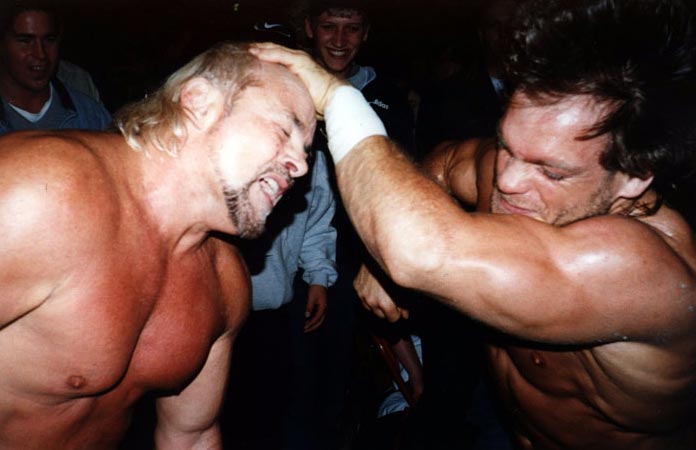
One of the biggest problems for the modernization of professional wrestling, not covered in my last wrasslin’ bit, is the so called wrestling community. This especially concerns its Internet variant, which continues to be a barrier to any outsider views being able to filter through long enough to have any positive or lasting impact.
Choice In A Virtual World
Published on January 24th, 2013 in: Gaming, Over the Gadfly's Nest |By Paul Casey
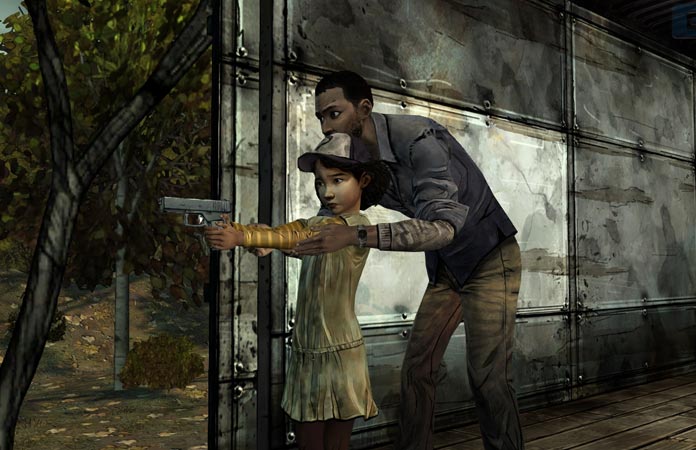
The Walking Dead
Please note that this article contains spoilers for both The Walking Dead and Mass Effect 3 games.
Morality may consist solely in the courage of making a choice.
—French Prime Minister guy (Léon Blum)
I have written a bit before about choice in video games, but the last year has again shown how divided the video game community is over this issue. Two games in particular have revealed a particularly ugly limitation among those who play video games: The Walking Dead and Mass Effect 3. This limitation manifests itself through the player failing to engage morally or philosophically with a game unless doing so opens up different content. For a disturbing amount of people, moral choices in video games are simply a euphemism for branching gameplay.
Branching gameplay is exemplified by Quantic Dream’s Heavy Rain. “The player dictates the story told and every choice matters!” The player generally sees “every choice matters” to mean “every choice will branch the story in different ways.”
Why Wrestling Can’t Modernize
Published on January 8th, 2013 in: Over the Gadfly's Nest, Pro Wrestling, Sports |By Paul Casey

Wrestling is not a sport. It is some combination of martial arts exhibition, magic, and comic books. It is a dangerous profession. As I wrote around this time last year on Popshifter, there are many reasons why professional wrestling has not gained legitimate mainstream acceptance.
Over the last year in WWE—the most powerful wrestling outfit in the world—CM Punk, independent wrestling hero and one of the most gifted technicians in at least a decade, has held the main world title. He has held it for over a year, straight. In modern times this is extremely rare. In the old days title reigns lasted years; now they last months with a much wider pool of talent vying for the top prize. This is not really a bad thing—even though some would-be traditionalists argue that it has added to wrestling’s decline—as when the wrestlers in competition are talented and the bookers know how to weave storylines together it can reflect the best aspects of professional wrestling: fast, brutal, hilarious, and supremely athletic.
I have admired Punk for a long time, and when he shook up the company in 2011, it was an exciting time to be a wrestling fan. I hoped, as many did, that this would be the moment when wrestling finally moved on and progressed beyond emulating the successes it had in the past. Even though there have been many fine things about CM Punk’s run as the top guy in WWE (and arguably in all of pro wrestling), it emphasizes again how deeply ingrained wrestling’s problems are.
It’s (less than) a Wonderful Life
Published on December 6th, 2012 in: Holidays, Movies, Over the Gadfly's Nest |I am about to share what I’m sure will be an unpopular opinion. I don’t care for It’s a Wonderful Life.
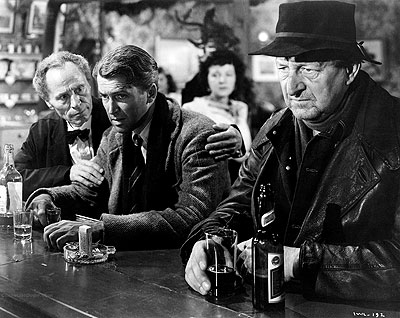
In case there’s anyone out there who hasn’t seen it, It’s a Wonderful Life is a 1946 film directed by Frank Capra and starring James Stewart, Donna Reed, and Henry Tavers. Stewart plays George Bailey, a building-and-loan manager who is thrown into crisis on Christmas Eve when his uncle (a co-worker) misplaces $8,000 that was meant to be deposited in the bank. Faced with criminal charges over the money and beset by lot of small emergencies at home, George contemplates suicide and wishes aloud that he’d never been born. A kindly angel named Clarence (Tavers) comes down and shows George what the world would be like if that were the case.
Editorial: Join Our Club
Published on September 26th, 2012 in: Editorial, Over the Gadfly's Nest |By Paul Casey

Sasha Grey:
Hipster or anti-hipster?
The first sign that you are a hipster is that you cannot stop using the word “hipster.” In conversation, your thoughts turn to those angles and rimmed glasses and how their love of Animal Collective makes them inauthentic. They’re false. You’re the real deal. You get hard at the thought of real music that gets to the heart of the matter. You think of yourself as open-minded but the need to attack that music you see as inherently wrong brings on physical discomfort, until you can release it on some misguided soul who loves Kenny Loggins without irony.
“Hipster” is rarely self-applied. It is a put-down, and those who use it with venom do so not to mock the pomposity of uptight jerkwads who JUST CAN’T BELIEVE THAT YOU DON’T FEEL WHAT THEY FEEL, but to highlight their confusion in not appreciating the universal objective qualities in music which disallow one from liking The Dandy Warhols over The Brian Jonestown Massacre. Or the other way around. There is no opposition to the hipster. There are simply variations of the hipster, which share the same affliction: They put far too much stock in their taste. What bothers them more than finding someone with the wrong tastes is being reminded that their taste rectification is not egalitarian but a rather dismal attempt to order the world.
The Killer Inside Me
Published on August 3rd, 2012 in: Books, Movie Reviews, Movies, Over the Gadfly's Nest |By Paul Casey

All art should be able to cover bad thoughts and bad people, as they exist, or could exist, without having to make these things pay back society in some sense. After reading Jim Thompson’s The Killer Inside Me and watching Michael Winterbottom’s 2010 adaptation, it seems that many critics demand moral payback. Taking Lou Ford and making him a cautionary tale, or something for upstanding society to feel superior to, would make a lot more people comfortable.
Metacritical Mass, Part Two: Plot Holes and A-holes
Published on July 25th, 2012 in: Critics/Criticism, Movies, Over the Gadfly's Nest |Last week, I criticized criticism (as well as criticized the criticism of criticism), discussed how critics enjoy movies, and disapproved of Kevin Smith’s anti-critic campaign. This was all uppermost in my mind after the early reviews of The Dark Knight Rises provoked some rather unsavory behavior.
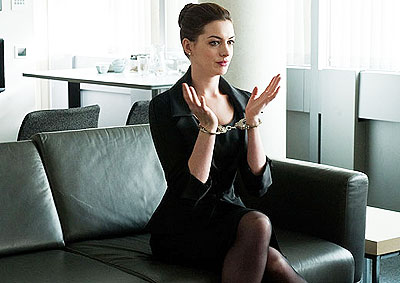
It’s okay, Selina. I’m afraid of them, too.
In the interim, I have actually seen The Dark Knight Rises (twice) and read the original reviews that caused such a stir. I’ve also endured an absolutely soul-crushing onslaught of “reviews” of The Dark Knight Rises passing themselves off as criticism. And I’ve come to question whether I even want to be considered as a film critic anymore.